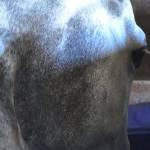Herbal Supplements for Horses

Many alternative therapies are being used to improve the quality of life and health of horses. Massage, acupuncture, physiotherapy, and herbal supplements are all being routinely employed by horsemen to complement (and sometimes replace) traditional methods of injury management and prevention. While finding a quick fix is likely desired, often the answer lies in a long-term commitment to modification of the training programme and careful management of the horse. Nevertheless, the plethora of herbal products available from catalogs and online suppliers attests to their increasing popularity.
Many horse owners erroneously believe that because a product is derived from a plant, it is “natural” and not a drug, and that anything sold as a feed supplement (usually in a bucket or as a liquid) is automatically “unnatural” and therefore inferior.
In truth, many modern drugs are derived from plants; for example, willow bark is the source of salicylic acid, the base ingredient of aspirin. And, of course, “natural” and “green” do not automatically imply safety. Oleander is highly toxic to horses and humans alike, and comfrey can be used externally, but is known to produce liver damage in humans if taken internally.
Another common misconception is that herbal supplements will not be detected in a drug test. This is not true. Valerian, commonly used as a calming agent in many herbal preparations, is tested for and will produce a positive drug test on urine analysis. As the testing methods improve and the use of herbs increases, so will the number of compounds tested for and detected.
Care must also be taken when applying the nutritional principles of one species to another. Many of the recommendations made by herbalists for horses are based on research and experience in humans or another species. This practice is unprofessional and may potentially be dangerous. It is always better to purchase products from large, reputable companies that conduct research into their products on the species for which it is intended—in this case, horses—rather than to trust an individual, no matter how well-meaning, who sells herbs in bags bearing neither label nor product details. Be cautious and diligent about everything that goes into your horse’s feed bin, whether an herbal preparation or a proprietary supplement. You should only purchase products that meet the following criteria:
- Product is clearly labelled with the active ingredients or amount of each herb per daily dose. Be wary of products that hide the composition details inside the container, so that you purchase the product before you know what is in it.
- Label gives an indication of expected mode of action such as “assists in reducing mental stress in horses.” When a direct claim is made, the product should be registered with the appropriate regulatory authority.
- Container should show batch number and/or date of manufacture, and expiration date.
- Label should provide contact details for the manufacturer.
- An accurate measuring device should be included.
It is also important to recognise the form of the product that you are feeding and how that may affect its efficacy. For example, fresh, crushed garlic has some wonderful properties, from an immune booster to an in-feed fly repellent, but heating and drying garlic to powder or granules destroys much of its effectiveness.
The following is a very brief summary of some of the herbal products commonly fed to horses. Additional reading of texts on herbs for horses is recommended. If you have questions about feeding herbs or an herbal preparation, check with an equine nutritionist before using the product. Also, check the competition regulations for your discipline or breed of choice, as additives may be allowed under some rules and banned in others.
Dandelion: Claims include action as a mild diuretic.
Devil’s claw: Reputed to be useful as a painkiller and anti-inflammatory.
Echinacea: Several different types of this plant exist, which may or may not influence its efficacy. Supposedly stimulates the immune system.
Licorice root: Used as an expectorant to loosen mucus.
Valerian: Will be tested for in performance horses because of its effectiveness as a natural tranquiliser.
Willow: Used as a painkiller; natural source of salicylic acid. Will be tested for in performance horses.
Yucca: Believed to have anti-inflammatory properties, although very little research has been done in horses to verify its safety and efficacy.








